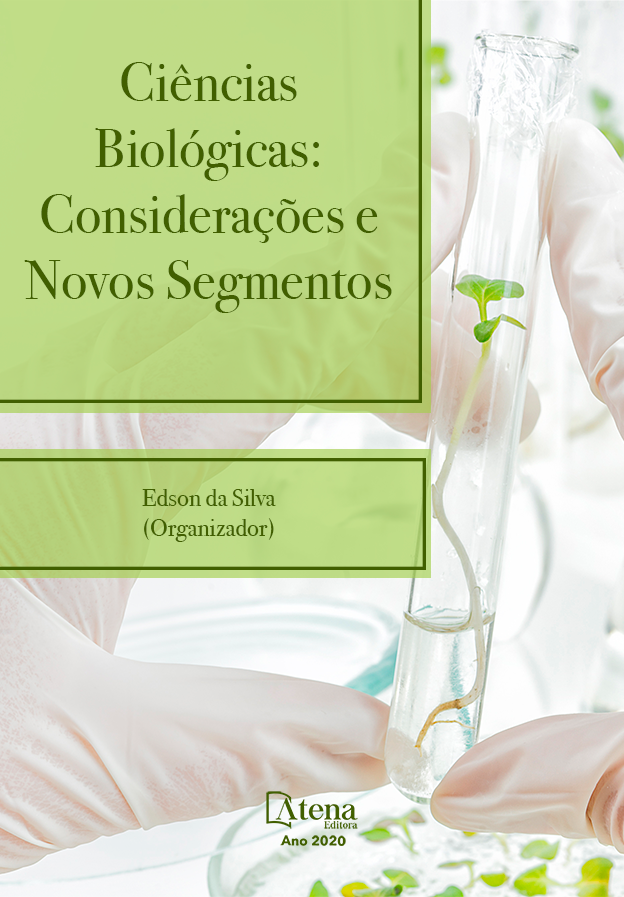
BIODIGESTOR COMO FONTE DE MATÉRIA ORGÂNICA PARA O PLANTIO DE LEGUMINOSAS
Diariamente, uma variedade de moléculas provenientes de fontes naturais e industriais, são lançados na atmosfera, como o metano. Quando este gás é liberado na atmosfera, participa do efeito estufa, colaborando, desta forma, para o aquecimento global. O gás é produzido, de forma natural, pela decomposição de matéria orgânica; digestão de animais herbívoros; metabolismo de certos tipos de bactérias; dentre outras formas. A utilização desse gás, queimado no local ou despejado diretamente no ambiente, pode ser utilizado para a produção de energia elétrica, em usinas termoelétricas ou pequenas centrais termoelétricas, com a finalidade de redução da poluição atmosférica e otimização da matriz energética nacional. Os resíduos da biodigestão podem ser utilizados como biofertilizantes, pois possuem alta concentração de nutrientes importantes para as plantas. Os biodigestores seriam uma forma interessante de evitar o descarte dos resíduos em lixões e aterros. Resíduos tratados dessa maneira produzem o biogás, composto basicamente por dois gases de efeito estufa (GEEs): metano (CH4) e o gás carbônico (CO²). Ambos podem ser utilizados na produção de energia elétrica, térmica ou mecânica, além de, ao final do processo, ainda resultam em adubo.
Este trabalho tem como objetivo dar continuidade ao projeto anterior dessa instituição de ensino e usar a matéria orgânica produzida pelo biodigestor usando-o como fertilizante natural e acompanhar o crescimento de leguminosas que foram usadas neste trabalho (sementes de feijão) que foram estudadas em três ocasiões diferentes, separadas em duas amostras ( sol e sombra). Em cada uma das duas amostras, foram plantadas as sementes e fertilizadas com NPK (fertilizante artificial) e o líquido proveniente do biodigestor e água, respectivamente, com o intuito de observar o crescimento de cada uma e mostrar que os fertilizantes orgânicos podem ter mais efeito no crescimento da planta.
BIODIGESTOR COMO FONTE DE MATÉRIA ORGÂNICA PARA O PLANTIO DE LEGUMINOSAS
-
DOI: 10.22533/at.ed.13920210913
-
Palavras-chave: biodigestor, leguminosas, NPK.
-
Keywords: biodigester, legumes, NPK
-
Abstract:
Daily, a variety of molecules from natural and industrial sources are released into the atmosphere, such as methane. When this gas is released into the atmosphere, it participates in the greenhouse effect, thus contributing to global warming. The gas is produced, naturally, by the decomposition of organic matter; digestion of herbivorous animals; metabolism of certain types of bacteria; among other ways. The use of this gas, burnt on the spot or dumped directly into the environment, can be used for the production of electric energy, in thermoelectric plants or small thermoelectric plants, with the purpose of reducing atmospheric pollution and optimizing the national energy matrix. Residues from biodigestion can be used as biofertilizers, as they have a high concentration of important nutrients for plants. Biodigesters would be an interesting way to avoid the disposal of waste in dumps and landfills. Wastes treated in this way produce biogas, basically composed of two greenhouse gases (GHGs): methane (CH4) and carbon dioxide (CO²). Both can be used in the production of electrical, thermal or mechanical energy, and, at the end of the process, still result in fertilizer.
This work aims to continue the previous project of this educational institution and use the organic material produced by the biodigester using it as a natural fertilizer and monitor the growth of legumes that were used in this work (bean seeds) that were studied on three occasions different, separated into two samples (sun and shade). In each of the two samples, the seeds were planted and fertilized with NPK (artificial fertilizer) and the liquid from the biodigester and water, respectively, in order to observe the growth of each one and show that organic fertilizers can have more effect in plant growth.
-
Número de páginas: 5
- Saulo Paschoaletto de Andrade
- Luana Ramos Astine
- Breno Wentrick da Silva Costa
- Marcus Vinicius Javarini Temponi
- Rosângela Marques de Lima Paschoaletto


